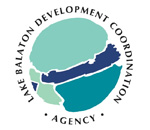
 The Regional Development Agency Međimurje REDEA Ltd. was founded on December 9th 2004 by the Međimurje County with the aim of supporting sustainable development processes in Međimurje. REDEA is the legal successor of The Međimurje Entrepreneurial Centre (MPC) established in 1998, which primarily assisted small and medium-sized enterprises and farmers (business plans, financing support). Having been granted EU candidate status in 2004, Croatia gained the opportunity of drawing on EU pre-accession funds. This opportunity, in combination with a widened scope of activity, resulted in transforming the MPC into a development agency, which entailed specific competences as well as a larger number of employees. REDEA was founded as a publicly owned trading company and was co-financed by the Međimurje County as the founder and sole owner. The Agency functions as a certified regional coordinator for the Međimurje County, in accordance with the Law on Regional Development of the Republic of Croatia. REDEA’s activities include strategic planning as a precondition of focused development, the development of the economy, as well as the development of agriculture, rural development and human resources development.
The Regional Development Agency Međimurje REDEA Ltd. was founded on December 9th 2004 by the Međimurje County with the aim of supporting sustainable development processes in Međimurje. REDEA is the legal successor of The Međimurje Entrepreneurial Centre (MPC) established in 1998, which primarily assisted small and medium-sized enterprises and farmers (business plans, financing support). Having been granted EU candidate status in 2004, Croatia gained the opportunity of drawing on EU pre-accession funds. This opportunity, in combination with a widened scope of activity, resulted in transforming the MPC into a development agency, which entailed specific competences as well as a larger number of employees. REDEA was founded as a publicly owned trading company and was co-financed by the Međimurje County as the founder and sole owner. The Agency functions as a certified regional coordinator for the Međimurje County, in accordance with the Law on Regional Development of the Republic of Croatia. REDEA’s activities include strategic planning as a precondition of focused development, the development of the economy, as well as the development of agriculture, rural development and human resources development.
Field of work:
- Initiating and implementing strategic projects
- Support in identifying, creating and implementing projects that are co-funded by national and EU programmes
- Preparation and implementation of EU projects related to fields of work
- Organising and preparing public and private sector education and training
- Providing information on available support programmes and subsidies for entrepreneurs (including EU funds) as well as counselling on the design of project proposals
REDEA’s activities are focused on the needs of:
- The Međimurje County
- The units of local self-government
- Public institutions (in education, health care, social care, utility services…)
- Agriculturalists and farmers
- The economy (entrepreneurs and craftsmen; local and foreign investors)
- Organisation of the civil society
 The Lake Balaton Development Coordination Agency (LBDCA) in a non-profit company and was established in January 2000 by the Lake Balaton Development Council (LBDC). It performs professional and operative duties promoting the development of the Lake Balaton area related to the activities of the Council. LBDCA’s aim is to provide effective assistance so that Lake Balaton and its vicinity should become an attractive region. The LBDCA works with domestic and international partner organizations to launch forward looking initiatives focused on sustainability issues. Accordingly, the agency is responsible for coordinating and managing projects that contribute to the development of the region and supporting local and micro-regional initiatives.
The Lake Balaton Development Coordination Agency (LBDCA) in a non-profit company and was established in January 2000 by the Lake Balaton Development Council (LBDC). It performs professional and operative duties promoting the development of the Lake Balaton area related to the activities of the Council. LBDCA’s aim is to provide effective assistance so that Lake Balaton and its vicinity should become an attractive region. The LBDCA works with domestic and international partner organizations to launch forward looking initiatives focused on sustainability issues. Accordingly, the agency is responsible for coordinating and managing projects that contribute to the development of the region and supporting local and micro-regional initiatives.
Planning and Decision-making:
The basic activities of the Agency include executing the long-term area development concept of the LBRA, preparing for the Council time-proportionate implementation activities as well as contributing to the implementation of the Lake Balaton Region Detailed Development Plan.
Project Application and Management:
LBDCA also has extensive experience in the application and management of development funds appropriated by the central budget based on decisions by the Council and other European sources. In addition, the Agency has been implementing various EU projects and has been involved in many transnational co-operation actions.
Regional Cooperation:
LBDCA plays an important role in the future of the region by enhancing effective cooperation amongst regional organisations, participating in the coordination of research and sectoral programmes, maintaining contact and negotiating with the competent statistical regions, counties, micro-regions and municipalities. The Agency believes that the promotion of new project ideas, the search for existing project initiatives and their development into applications are also important duties.
Research Activities:
LBDCA is a unique regional development agency in the sense that since 2002 it has undertaken research in the fields of economic and social sciences to help achieve the area’s development objectives. This work is carried out by a professional Social Science Research Team, which also plays important role in the fruitful implementation of the Health Tourism in the Borders project.
 The Međimurje County Tourist Board was founded in 1999. The MCTB office was formed in 2001. In accordance with its legal and statutory obligations the MCTB carries out activities connected with developing new tourism products, promoting the complete tourism offer of Međimujrje and encouraging the development of new economic initiatives in the tourism sector. Up to this point the MCTB has implemented the following significant projects:
The Međimurje County Tourist Board was founded in 1999. The MCTB office was formed in 2001. In accordance with its legal and statutory obligations the MCTB carries out activities connected with developing new tourism products, promoting the complete tourism offer of Međimujrje and encouraging the development of new economic initiatives in the tourism sector. Up to this point the MCTB has implemented the following significant projects:
- The Međimurje Wine Road – result: the Međimurje Wine Road was proclaimed the best original tourist offer in continental Croatia in 2007 in the action The Green Flower of Croatia of the Croatian Tourist Board
- European Destination of Excellence– result: the Sveti Martin Municipality was given an award in 2007 in Portugal for being one of the 10 most high quality new tourist destinations for rural tourism in Europe – the project was lead by the MCTB in cooperation with the local community
- The Green Flower – result: in the last five years notable results have been achieved in this Croatian Tourist Board action in cooperation with local Tourist Boards and local communities. Places in Međimurje, as well as tourist facilities and the County as a whole have been one of the most successful in continental Croatia (Čakovec, Sv Martin na Muri, Toplice Sv Martin…) for several consecutive years in winning awards as one of the three best destinations in their categories.
- Međimurje Cycling Network – result: developed cyclo-tourism network connecting the tourist offer of Međimurje into one unique visiting system, and linking the entire region to Croatian and foreign destinations.
The Non-profit Regional Development Agency of the Zala County was founded by The Regional Development Council of the Zala County in 2006, with the aim of coordinating targets included in the development programme of the County.
The Non-profit Regional Development Agency of the Zala County has participated in the preparation and realisation of action plans of the Western Danube Region Operational Programme, as well as coordinating the development arrangements on the county level in the sub-regions of Hungary.
The Non-profit Development Agency of the Zala County has had a significant role in the realisation of joint cross-border cooperation programmes (Austria-Hungary, Hungary-Slovenia, Hungary-Croatia), and has participated as a partner in the implementation of development goals for the Zala County.
The activity domain of The Non-profit Development Agency is the Zala County, comprising 258 County communities.
As a partner of the ZMTFÜ the Agency took part in the LAMAPROM project for developing the labour market in the Slovenia-Hungary border region. The aim was to implement the project coded SI-HU-2-2-020 which ensures the mediation between workers, young people making career choices and the firms that are looking to employ workforce, offering innovative cross-border solutions for the improved retaining of the entire population in the region.
The task of this organisation was to promote and improve the scholarship system for young persons (interns and students) of the Zala County as exemplified by proven practices from Slovenia.
Project Tasks:
The Non-profit Development Agency of the Zala County has taken up organising workshops in order to implement all development project goals for the Zala County. A particular focus was placed on local government, non-governmental organisations and institutions of high education.
A meeting was arranged to inform those living in the area of the project goals and content, as well as of the current state in development. An additional aim was to collect as many proposals as possible, so as to integrate them into the developmental study.
During the implementation of the project we organised a total of five workshops in different locations of the Zala County.